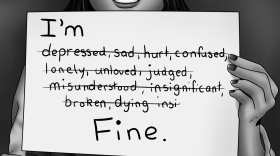What if the best beauty product cost practically nothing and was as easy to obtain as turning on the faucet?
Can drinking water help you lose weight and give you beautiful skin?
The Centers for Disease Control and Prevention are careful about making such claims..The CDC acknowledges the danger of dehydration and the importance of drinking water to keep your temperature normal, lubricate and cushion joints, protect your spinal cord, and gets rid of bodily wastes. The mere act of drinking water won’t burn many calories, but replacing sugary drinks with water and drinking water before a meal---to help you feel more full and eat less---can help you lose weight.
There’s debate among researchers about water’s benefit to skin. However, the skin is an organ and without water, organs do not function properly or at their best.
The recommended amount of water to consume each day varies from person to person, but the Mayo Clinic reports that the easy to remember “eight 8-ounce glasses” is a good general rule. Recently, the “gallon challenge” has become a popular encouragement to drink more water. This is twice as much as the daily recommended amount. There’s no definitive proof that more is better, but it also shouldn’t hurt...the excess will just be excreted. However, folks taking the challenge need to be mindful of pacing themselves: if you consume your gallon in less than an hour, you risk getting water intoxication. The electrolyte content of the blood is diluted, resulting in low sodium levels in the blood which can be deadly.
Resources:
• http://www.cdc.gov/healthywater/drinking/nutrition/
• http://www.mayoclinic.org/healthy-lifestyle/nutrition-and-healthy-eating/in-depth/water/art-20044256
• http://www.livestrong.com/article/424740-what-are-the-benefits-of-drinking-a-gallon-of-water-a-day/
• http://www.self.com/wellness/health/2015/12/how-to-drink-more-water/







